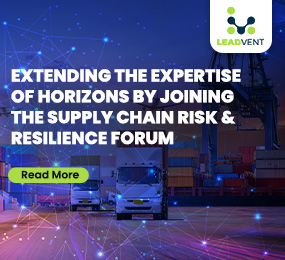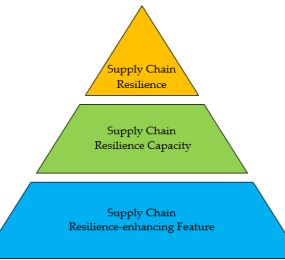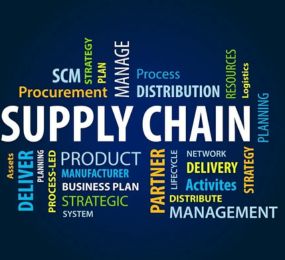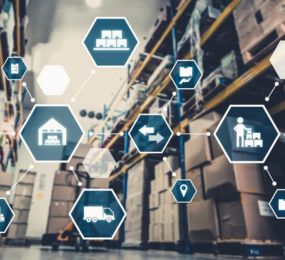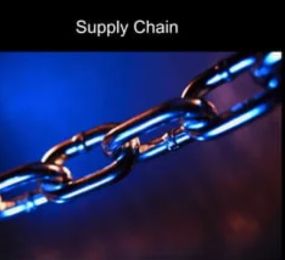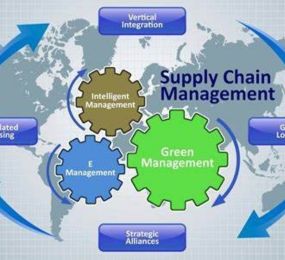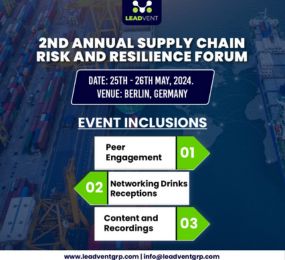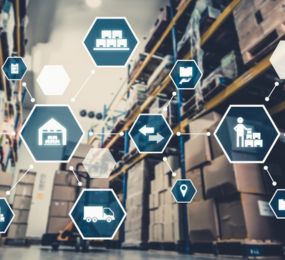Building Resilient Supply Chains: A Multi-dimensional Approach
The adversities currently being faced make almost every industry undergo rapid transformation through new challenges including climate change, cyberattacks, and unprecedented disruption in supply chains. Therefore, companies have to build resilient supply chains that are sustainable to navigate this treatment. There should be a combination that could prove to be successful, which emphasises the integration of Supply Chain Decarbonization and Sustainability, supply chain cybersecurity, and strategic innovation.
Supply Chain Decarbonisation and Sustainability on Upsurge
Sustainability is no longer an option; it has turned into a competitive edge. Supply chains are responsible for 80% of carbon emissions on the earth, according to the World Economic Forum. The companies engaging in the decarbonising agenda of supply chains are again aided by the positives of placing carbon as a forward point in their value chain agenda with efficiency and brand image.
For example, Unilever committed to net-zero emissions by 2039. By working with sustainable suppliers and renewable energy resources, emissions were down one-third, thus increasing profitability. In addition, IKEA improved its transportation network to reduce fuel consumption and carbon emissions by 20%.
These companies are pulling ahead of the competition by ensuring sustainable sourcing, energy-efficient operations, and waste reduction practices. In addition to regulatory compliance, supply chain decarbonisation translates into cost savings while building customer loyalty in this increasingly aware market.
Strengthening Supply Chain Cyber Security
As supply chains are becoming digital, they are also becoming attrition zones for cyberattacks. According to IBM, there is a 37% increase in cyber attacks targeting supply chains, with an average breach costing the companies $4.24 million.
Take the global shipping giant Maersk as a cautionary tale. In 2017, a multitude of cyberattacks against Maersk crippled operations at 76 ports, resulting in losses of $300 million. In light of this assault, the company redefined its strategy around supply chain cyber security by integrating blockchain to protect its data and increase transparency.
Companies must invest in cybersecurity to shield their operations, safeguard intellectual property, and win customer trust. This includes real-time monitoring for threats, multi-layered data encryption, and visibility tools within the supply chain that identify vulnerabilities well before they are exploited.
Weathering Innovations
Innovative technologies shall indeed be effects for really next challenges as per economy supply chain resilience in organisations across sectors, as outlined here:
Artificial Intelligence is online, thus enabling most companies to optimise demand forecasts, inventory management, and routing. For example, Amazon uses AI technology to predict shopping behaviour patterns and store those items, which creates a near-term AWS HQ data warehouse for high-demand products before possible runouts.
- Internet of Things: This allows real visibility through which products can be seen as they are being moved and can report status or events at all times, thus reducing waiting times and ensuring the quality of the product. For example, Walmart uses IoT-based sensors in its perishables.
- 3D Printing: Creates more local production while allowing industries to cut out global suppliers. On-demand, Airbus uses 3D printing to manufacture components for its aircraft, thus reducing costs and lead time.
Leadvent's Supply Chain Management Forum: Future of Supply Chains
It is continuous learning by industry leaders, followed up and led by supply chain cyber security tactics practice for Leadvent's supply chain management Forum—what event brings all supply chain professionals practical insights and networking?
Why attend Leadvent's Supply Chain Management Forum?
- Expert Insights: Acquire concepts from worldwide thought leaders on supply chain decarbonisation and sustainability, supply chain security, and future innovations.
- Real-world Case Studies: Learning what Unilever, Maersk, or Siemens case study successes did to apply these strategies in real-time to your supply chain.
- Interactive Workshops: Join in hands-on workshops around digital transformation, risk mitigation, and operational agility.
- High-impact Networking: Meet with decision-makers, technology providers, and potential partners who will contribute toward future-proofing your supply chain.
Case Study: Siemens in Sustainable Transformation of Supply Chain
Siemens had sustainability in its hands through green supply chains and energy-efficient manufacturing. As a result, it achieved a 30% reduction in carbon emissions and a 20% reduction in its operating costs. Blockchain technology also took root in Siemens to safeguard the protection of supply chain data, thus making the claim that sustainability and security at the same time is not impossible.
Frequently Asked Questions
1. In what way does supply chain decarbonisation increase profitability?
Decarbonisation leads to reduced energy expenditure, optimising efficiency and fostering brand loyalty. This generates financial benefits in the long run.
2. What major cybersecurity threats are there in supply chains?
Third-party vendors are mainly subjected to phishing and ransomware attacks—threats that are rampant and have multifarious damaging impacts.
3. Can Leadvent's forum help in my business?
This forum generates actionable insights, real-life case studies, and networking opportunities that will collectively assist your business in establishing a resilient supply chain for the future.
Grab Your Spot: For a Resilient Supply Chain
The future belongs to those businesses with adaptable, sustainable, and secure supply chains. Leadvent’s Supply Chain Decarbonization and Sustainability Forum will be the torchbearer for you in staying competitive within an unpredictable market.
Building a resilient supply chain isn’t just about surviving disruptions — it means thriving in a rapidly evolving market. Businesses can embrace new opportunities, improve operational efficiency, and bolster their market position by embedding sustainability, cybersecurity, and innovation in their supply chains. Don’t let the opportunity to future-proof your supply chain slip through your fingers — enrol today!


